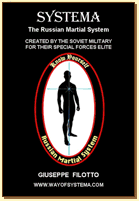Part 2 – Geography
Assuming you’ve read the previous post, Part 1, and have got your mind in order, strategically speaking, the next most important point is your physical location.
The ideal position is:
Physically defensible from a military point of view, broadly speaking. Ideally it should be suited to a guerrilla type of warfare that can remove most of the advantages from a numerically superior and technologically more advanced foe. Think you’re the Afghan in the mountains now. In a rural setting this would in fact be mountainous or hilly terrain with lots of forest type of ground cover and possibly caves or lots of rocky overhangs. In an urban setting, a close-knit group of multi-apartment estates that forms a kind of maze of pedestrian walkways and so on would be best suited to generally prevent search parties to be successful without losses, think Lebanon or Palestine, but, of course, in a case where artillery type weapons are going to be used, a rural setting is infinitely preferable.
Physically capable of supporting you in a grid down situation. In essence this means rural land area that can grow crops and preferably also has some hunting and/or fishing possibilities, as well as access to clean water, or at least water that is potable after boiling and purification.
In a location that is ethnically similar to yourself. Your sensibilities about race are completely irrelevant in a real SHTF scenario. Your uniform, like it or not, will be your skin tone, your externally apparent ethnical origins, your accent and mastery of the local language, and your genetic similarity to the people in closest proximity to you. That’s just how reality crumbles.
In a political situation that is as close to your own ideals, or at least neutral to them, rather than hostile. Obviously this is quite difficult to gauge in today’s reality-free politics and narrative saturation, but use your best judgement.
Far from military bases, biolabs, or even large industrial manufacturing plants. You want a place that is strategically unimportant in the event of a war or civilisational collapse.
In a country that permits you to own firearms legally. Ideally, you want to be able to own whatever weapons might be suitable in a SHTF scenario. Those countries that do not permit this still have armed forces that can, and will, brutally enforce whatever rules they want on their own citizens.
In a country where the military and police presence is relatively minor, inefficient or limited. For example, while there are many other issues to consider, Panama does not have a standing army.
All of the above suggest that a mostly rural area with some farmable land, in a place that permits you to have domesticated animals and legally own firearms is best.
Most people, unfortunately, are probably not in that situation, and, of course, some will thrive even in positions that are nearly the exact opposite of the situation described above, but if you want to maximise your chances, then the above list is what you should be aiming to move to while keeping an income stream that permits you to buy whatever you need to keep such a place well-equipped for any eventual future catastrophe.
If I were a young, single man, I would probably prefer a cabin in the woods, near a small village where I am earning just enough to keep me in food and ammo and some basic tools, than living in a nice apartment in a city, earning enough money to have all the latest toys but not enough to buy the cabin in the woods and have enough left over to properly equip it.
And if I did live in the city with a decent job and had lived a hedonistic lifestyle until now, I would go full viet-cong in the city style. That is, keep or improve my high paying job, but switch to living in the cheapest, most minimalist position possible and save as much and as fast as I can to at least put a deposit down on that cabin in the woods. Or buy the land where I can build it in due course. Making sure that it is permissible to build what I want in the location I choose. And if all I could afford is a small parcel of land, as long as it’s in a good position and I own it outright, the next thing I’d try and do is focus on buying the tools I’ll need to build that cabin. Starting with a generator if the place is off grid, and some simple power tools and then either get a container to store them in in situ, if safe to do so, or have a vehicle that allows you to transport them to site, and begin working on that cabin in my spare time asap.
There are videos by a guy who did exactly this in the UK, which in my opinion is not a viable country, because politically it is fully invested in globohomo, the level of citizen control is extreme, the punishments for wrong-think have now crossed the line into actual prison time for literally thought crime, and in order for you to own even a relatively innocuous firearm like a shotgun, you pretty much have to fit criteria that are opaque at best and subject to the whim of every bureaucrat that is fully invested in the narrative more than you can imagine. Nevertheless, Kriss built his own home on a piece of land and he did so starting out with a tent and very basic tools, in conditions far from ideal if you go see his early videos.
That such an enterprise can best be defined as “character building” in order not to use vulgar language, is a fact, but it is possible.
In short then, if you assume the worst case scenarios and yet have a strong spiritual, and hence mental, foundation (part 1) and create for yourself a comfortable living situation in a place that has all the strategic benefits identified above, (this part 2) you are then positioned better than probably 99% of the world’s population, and probably better than 99.5% or more. It’s a good start, and in part 3 we will be looking at the social aspects: family, friends, acquaintances and community. In part 4 we will examine the coalescing of all these elements into the winning strategy for whatever the future has in store for us all.








[…] WIN the generational fight against the WEF Homoglobos. You can find the various parts here: Part 1, Part 2, Part 3, and Part […]